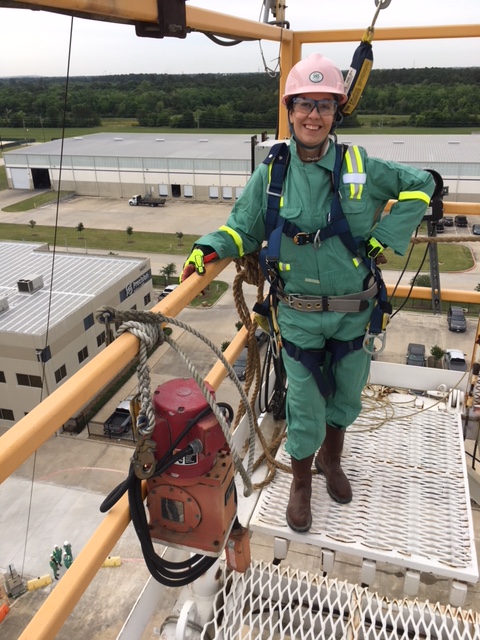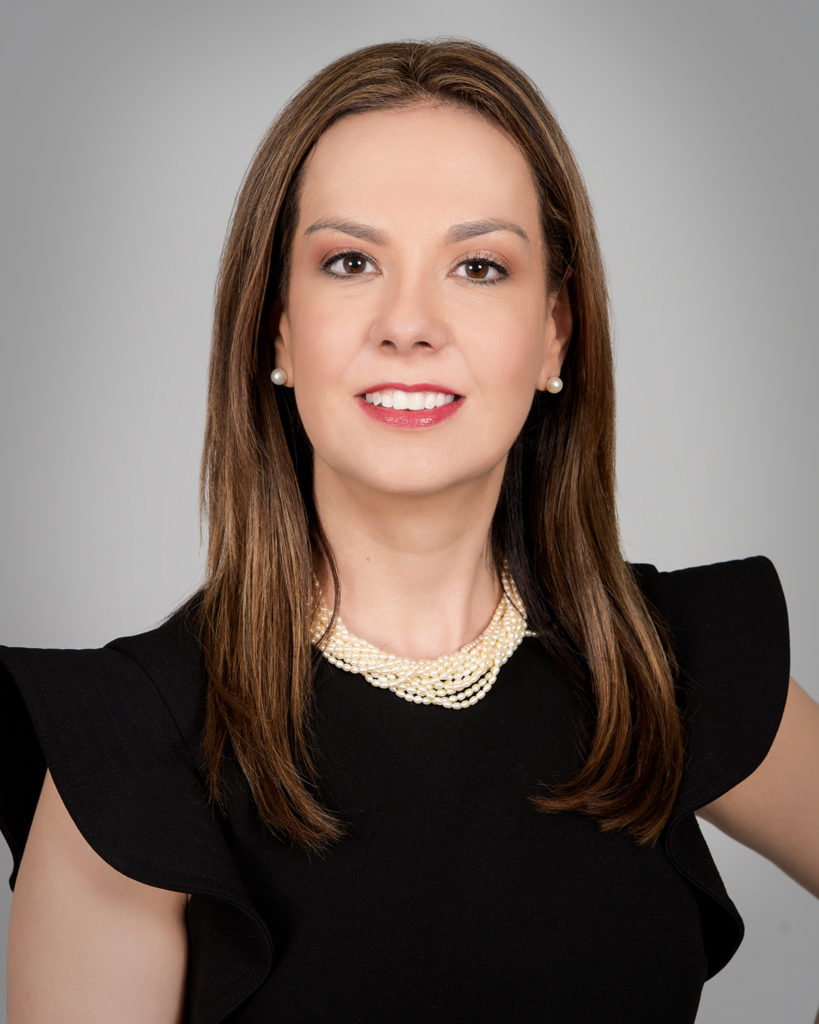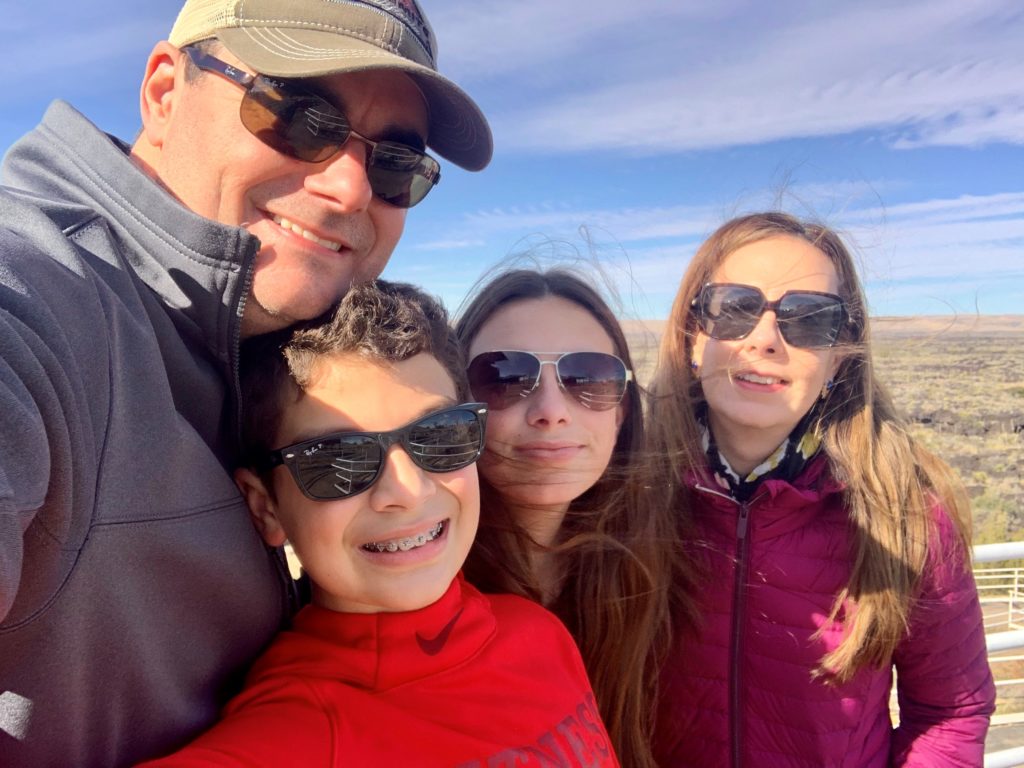
Veronica Foley
Veronica Foley had been on the job as a senior counsel at Precision Drilling for a year when the Houston-based company was sued by 1,006 of its own rig workers in Pennsylvania.
The employees and their lawyers claimed that Precision violated the Fair Labor Standards Act by not paying its workers for the time they spent putting on their protective gear for the job. The plaintiffs sought several million dollars in damages. Legal experts predicted that a win by the plaintiffs would have huge financial ramifications throughout the oil and gas industry.
“I’m not going to lie, this lawsuit hurt because Precision takes pride in how we treat our workers,” Foley said. “This is the largest case Precision has ever had.”
Last Dec. 17, Foley received an email from Norton Rose Fulbright partner Carter Crow, who was leading the defense as outside counsel. The federal judge threw out the lawsuit saying the plaintiffs were unable to lay a foundation for their claims.

“The win was amazing. This was my baby and I believed in this case from the beginning,” Foley said. “I think this was a fair ruling and the right result for the industry.”
Citing the huge court victory after eight years of intense litigation, the Association of Corporate Counsel’s Houston Chapter and The Texas Lawbook are pleased to honor Foley and the lawyers at Norton Rose Fulbright with the 2020 Houston Corporate Counsel Business Litigation of the Year award.
“Given the length of this litigation, Veronica has been key to the success of this case as she helped make swift and decisive strategy decisions during a time of great fluctuation in the oil and gas market,” Crow said in nominating Foley for the award. “Her decision-making was often focused on the longer-term implications of the rulings from this case, not only for Precision but also for the industry as a whole.”
Foley is now a two-time Houston Corporate Counsel Awards winner. She was the recipient of the 2019 General Counsel of the Year Award for a Midsized Legal Department. In 2018, Foley successfully led a critically important effort to have the publicly traded company’s shareholders approve a “pay-for-performance” executive compensation plan.
“I am so thankful for the team around me and Norton Rose Fulbright for supporting me,” she said.
Foley was born in Medellin, Colombia, where her mother was a medical doctor and college professor and her father was an engineer.
During the 15 years Foley lived in Colombia, the country was plagued by turmoil, corruption and violence. When she was five, her grandfather – the only lawyer in her family – was assassinated for being a political activist.
“We never learned which group was responsible for killing him,” Foley said in an interview last year. “Some said it was the cartels. Others said it was the government or another paramilitary groups.”
Foley, who is fluent in Spanish and French, said her mother took up her grandfather’s causes, but the threats of violence against her family became too serious.
“There were always fears,” she said. “We never took the same route or the same schedule to school. There was constant danger of being kidnapped.”
The family fled to Australia when Foley was 15.
A year later in 1992, the family moved to Houston. Foley’s mother still practices medicine and owns “My Family Doctor,” which is one of the largest independent healthcare providers in Texas. She manages 10 clinics in Houston which mainly serve minority communities.
Foley said her father retired as an engineer a few years ago to help run the healthcare business.
“Together, they make a killer combination,” she said.
Her parents’ decision to relocate to the United States, Foley said, changed her life.
“Moving to America made me feel like I could be and do anything,” she said. “I always wanted to be a lawyer.”
Foley’s high school counselor warned her against aiming too high and recommended that as an English-as-a-second-language student, Foley should simply aim to pass the TAAS test and graduate.
“I knew I could beat the odds. I wanted more,” she said. “By the time I was in law school, I realized that the only barrier to my success was my inability to dream big.”

Foley received her bachelor’s degree in psychology and French from Baylor University. Despite the pressure to go to medical school, she taught fourth grade at Blackburn Elementary for one year and then went to Houston’s South Texas College of Law, where she graduated cum laude in 2002.
In 2003, Norton Rose Fulbright – then called Fulbright & Jaworski – hired Foley as an associate in its complex business litigation practice, where she represented energy companies and other clients involved in a handful of multi-hundred-million-dollar disputes with foreign governments.
Precision Drilling came calling in 2010, hiring Foley as its senior counsel for litigation.
When the 1,006 Precision workers filed the FLSA lawsuit in 2011, they argued that the company should have paid them overtime for the time spent donning and doffing personal protective gear and walking to and from their rig to their changing quarters.
Foley hired her old law firm, Norton Rose Fulbright, to lead the defense.
“The litigation was complex and spanned eight years, with phased discovery from a subset of 75 plaintiffs, more than two dozen oral depositions, a separate phase of expert discovery and briefing and several rounds of dispositive briefing,” Crow said.
“At issue in the case was the unsettled question of whether the drilling mud and other chemicals used during the drilling process were hazardous such that Precision should be legally required to pay for the donning and doffing protective gear such as gloves, hard hats, eye goggles and steel toe boots and associated walking time,” he said.
A victory for the plaintiffs, according to Crow, would have major implications for the drilling rig industry and possibly other blue-collar fields because companies may have become obligated to pay workers for time spent putting on and taking off personal protective gear.
In 2015, Precision promoted Foley to general counsel, corporate secretary and senior vice president. She said it was a dream come true.
As Foley and her team continued to battle the FLSA litigation, she was confronted with another crisis in 2018.
Precision leaders proposed a revised “pay-for-performance” executive compensation plan that they believed would help the company recruit and retain extraordinary talent. The proposal needed shareholder approval.
A couple of proxy advisors, however, predicted the plan might not have the shareholder votes to pass because Precision’s revenues were slumping due to declining oil and gas prices.
Precision put together a team of executives led by Foley to engage shareholders and try to convince proxy advisors, such as ISS and Glass Lewis, to recommend voting in favor of the proposal.
“We used the proxy as a vehicle to communicate our pay-for-performance philosophy and explain our governance policies,” Foley told The Texas Lawbook last year.
Foley and the team put together a persuasive executive summary that demonstrated a strong link between pay-for-performance and shareholder interests.
It worked, as 89.8% of Precision shareholders supported the plan.
“It was an amazing experience to be able to tackle such an important and unique project and to have such an impact for the growth and success of the company, even as we continued to handle the normal day-to-day functions of the legal department,” Foley said.
One of those other projects was the lingering FLSA lawsuit, which was entering its eighth year and it was getting costly.
“We were spending about $1 million a year in litigation costs on this one matter,” Foley said. “We even made settlement offers that we thought were fair, but they rejected all of them.

Foley with her family.
“We were very confident that we would win the case, but this area of the law keeps moving and some provisions can be ambiguous,” she said.
Critical to the plaintiffs’ case was toxicity expert Dr. Ronald Bishop, who testified that Precision’s drilling rigs were a sufficiently hazardous working environment to require the extra protective gear, which would then force Precision to pay for the workers’ time to prepare for the job.
Foley and Crow filed a Daubert motion seeking to have Dr. Bishop’s testimony excluded because it did not meet the standards of scientific evidence.
U.S. District Judge Matthew Brann, who had granted conditional class action status to the litigation in 2013, reversed course in 2019 by granting Precision’s motion and rejecting Dr. Bishop’s testimony.
“Dr. Bishop has no data on the amount of any hazardous material to which Precision employees are exposed, on the amount that accumulates on their PPE equipment or on the amount that one might be exposed to as a result of coming into contact with soiled PPE,” Judge Brann wrote.
“Lacking this factual foundation, Dr. Bishop’s conclusion that soiled PPE should not be taken offsite is nothing more than a hunch,” the judge wrote.
A few months later, Judge Brann, in a seven-page ruling, dismissed the entire lawsuit against Precision. The plaintiffs have appealed to the U.S. Court of Appeals for the Third Circuit.
“Veronica helped facilitate and implement methods to help Norton Rose Fulbright obtain the information they needed from drilling rigs that were spread across the United States,” Crow said. “In particular, she helped manage the flow of information such that the fewest interruptions to business operations occurred. She was a critical part to this eight-year legal victory.”

Veronica Foley (middle) at last year’s ACC Houston awards event
Foley said that winning after battling for eight months is professionally satisfying.
“This case was very important for Precision and for our industry,” she said. “Having to pay to put on and take off uniforms daily two times a day for all of our rigs in every basin could have meant millions of dollars.”
The successful transition from corporate law firm litigator to corporate general counsel, Foley said, is one of her proudest achievements.
“Although I firmly believe that being a litigator and working at a big firm prepared me for most of the challenges of being a general counsel, there were others that I had to learn on my own,” she said. “The hardest thing for me was to adjust my focus from someone whose role it is to point to potential legal problems to a problem solver.
“As in-house counsel who is responsible for global operations, I see problems across many disciplines,” she said. “As outside counsel, my role was mainly to point out potential risks that a company could face in a certain situation. As in-house counsel, my role is to assess those risks and think of potential solutions. It is certainly more rewarding, but also a lot more challenging.”
Foley said that the position of general counsel and her work specifically has evolved in recent years.
“The job has changed a lot. Precision itself has undergone a huge change,” she said. “We went from being a mainly Canadian and U.S. company to being a multinational with offices in Latin America and the Middle East.
“Unfortunately though, we have also not been immune to the recent industry decline and/or COVID 19,” she said. “These macro events have also impacted this company, and we are facing different risks and challenges and must adapt constantly.”
Foley and her team of six lawyers are working almost entirely from home.
She said the reason she hires Norton Rose Fulbright and other firms is because she trusts them, but she also has some critical advice for lawyers who want her business.
“I need to trust you and your ability to handle legal issues,” she said. “I review all my bills. I am practical and I am looking for practical solutions. I hate surprises. I don’t need long explanations. I need you to not just tell me my risk, work with me in finding solutions and mitigating that risk. Have my back and I will have yours.”
Foley also asks firms to be strategic when asking her to attend or participate in events.
“Don’t invite me to too many things, and don’t get offended when I say no,” she said. “I have two kids and a husband, and they come first. I am more likely to go if at least one of them can accompany me. Make the event meaningful. I prefer it if I can learn something or meet interesting people.”
